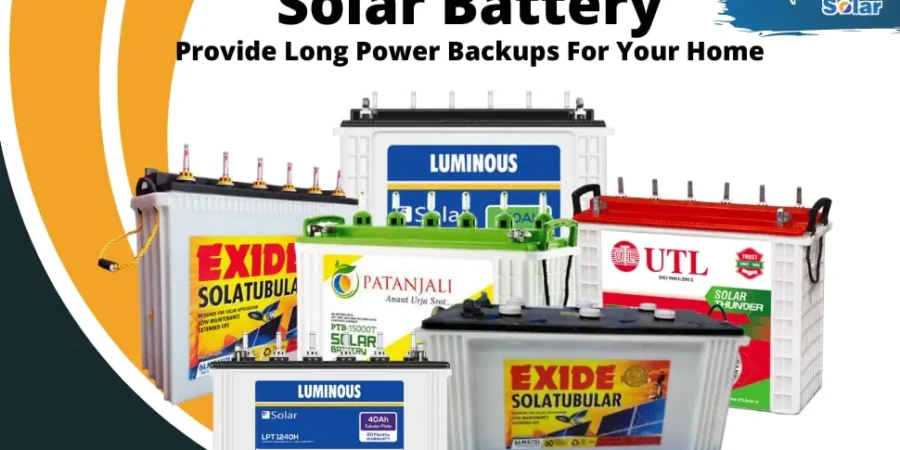Solar Inverter Battery: The Ultimate Guide for Nigerian Homes and Businesses
f you’re planning to set up a solar power system in Nigeria, the solar inverter battery is arguably the most important component you’ll invest in. It stores the energy from your solar panels and powers your home or office when the sun goes down or during a blackout.
But with so many types, capacities, and brands in the market, choosing the right battery can be confusing. This guide breaks down everything you need to know about solar inverter batteries—from types and benefits to pricing, maintenance, and top brands in Nigeria.
What Is a Solar Inverter Battery?
A solar inverter battery is a rechargeable storage device that stores energy generated by solar panels or from the national grid (NEPA). The inverter then converts the stored DC (direct current) into AC (alternating current) for powering household appliances and office equipment.
Key Functions:
- Stores solar energy for later use
- Provides backup during grid failure
- Powers appliances through an inverter
Types of Solar Inverter Batteries
1. Lithium-Ion Batteries
- ✅ Long lifespan (2000–5000 cycles)
- ✅ Fast charging, lightweight
- ✅ Minimal maintenance
- ❌ More expensive upfront
Popular brands: Felicity, Pylontech, Huawei LUNA, BYD, Nexgen
2. Tubular Batteries (Lead-Acid Type)
- ✅ Affordable
- ✅ Durable in Nigerian climates
- ✅ Easy to maintain
- ❌ Needs regular water topping
- ❌ Heavier and larger
Popular brands: Luminous, Genus, Sukam, Exide
3. Sealed Maintenance-Free (SMF/GEL) Batteries
- ✅ No water topping required
- ✅ Safe for indoor use
- ✅ Compact size
- ❌ Lower lifespan than lithium
Popular brands: Mercury, Bluegate, Must Power, Eastman
How to Choose the Right Inverter Battery
| Factor | What to Consider |
|---|---|
| Battery Type | Lithium for long-term use; Tubular for affordability |
| Capacity (Ah) | 100Ah – 220Ah common for homes; go higher for heavy use |
| Voltage Rating | Match with inverter: 12V, 24V, or 48V |
| Usage Frequency | Frequent blackouts? Go for deep-cycle batteries |
| Budget | Lithium costs more but lasts longer |
| Space Availability | Tubular batteries are bulkier than lithium |

Top Solar Inverter Battery Brands in Nigeria
| Brand | Battery Type | Capacity Range | Average Price (₦) |
|---|---|---|---|
| Luminous | Tubular / GEL | 150Ah – 220Ah | ₦120,000 – ₦250,000 |
| Felicity | Lithium | 100Ah – 300Ah | ₦220,000 – ₦850,000 |
| Genus | Tubular / GEL | 150Ah – 200Ah | ₦130,000 – ₦210,000 |
| Bluegate | SMF / GEL | 100Ah – 200Ah | ₦100,000 – ₦180,000 |
| Pylontech | Lithium | 2.4kWh – 4.8kWh | ₦600,000 – ₦1,200,000 |
| Must Power | GEL / SMF | 100Ah – 200Ah | ₦90,000 – ₦170,000 |
Solar Inverter Battery Price in Nigeria (2025)
| Battery Size | Tubular (₦) | Lithium (₦) | GEL/SMF (₦) |
|---|---|---|---|
| 100Ah / 12V | ₦95,000 – ₦130,000 | ₦220,000 – ₦350,000 | ₦90,000 – ₦130,000 |
| 150Ah / 12V | ₦120,000 – ₦180,000 | ₦280,000 – ₦420,000 | ₦110,000 – ₦160,000 |
| 200Ah / 12V | ₦160,000 – ₦250,000 | ₦350,000 – ₦550,000 | ₦140,000 – ₦180,000 |
| 300Ah / 24V | N/A | ₦550,000 – ₦850,000 | N/A |
Looking to compare more solar inverter brands options? Read our guide on the solar Inverter price in Nigeria to explore the prices of top-performing solar inverter brands.
Where to Buy Inverter Batteries in Nigeria
- 🛒 SolarEnergySupplyStores.com (Classified platform for solar products)
- 🏪 Alaba Int’l Market (Lagos), Wuse Zone 3 (Abuja), Mile 3 Market (PH)
Always verify genuine battery labels, QR codes, and warranty cards when buying.
Battery Maintenance Tips
🛠 For Tubular Batteries:
- Check and top up distilled water every 3–6 months
- Clean terminals and prevent corrosion
- Store in cool, ventilated space
🔋 For Lithium Batteries:
- No water required
- Avoid over-discharge
- Use with BMS-enabled inverters
FAQs About Solar Inverter Batteries
1. Which battery lasts longer: lithium or tubular?
Lithium batteries can last 5–10 years, while tubular batteries typically last 2–4 years with proper care.
2. How many batteries do I need for my home?
Depends on your load. A 2-bedroom home may require 2 x 200Ah batteries for decent backup.
3. Can I use my old inverter with a lithium battery?
Only if the inverter supports lithium charging (BMS compatibility). Consult your installer.
4. What’s the best battery for solar panels in Nigeria?
For long-term use: lithium-ion
For affordability: tubular
For zero-maintenance: GEL/SMF
5. How do I know my battery is weak or dead?
Watch for: low backup time, slow charging, swelling, or acid leakage (in tubular types).
Conclusion
Choosing the right solar inverter battery is the key to enjoying uninterrupted power in Nigeria. Whether you’re going for a cost-effective tubular battery or a long-lasting lithium-ion option, make sure it matches your inverter, supports your load, and fits your budget.
With reliable brands like Luminous, Felicity, Genus, and Pylontech available locally, it’s never been easier to invest in reliable, renewable energy backup.



Leave a Reply